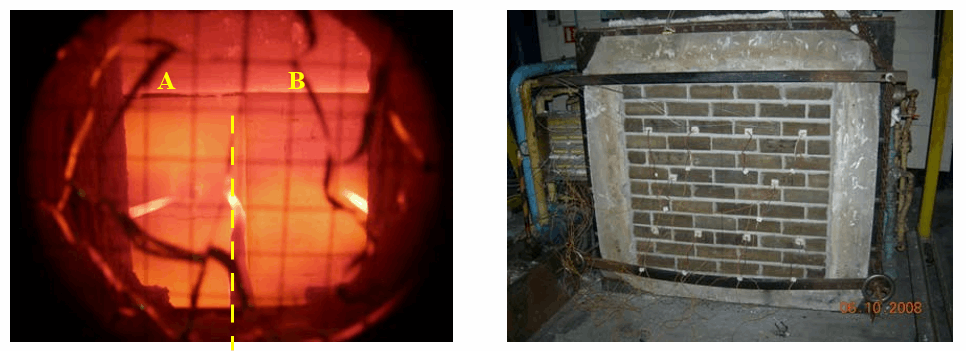J.P.Forth1 and T.Heaton2
1 Senior Lecturer, Civil Engineering, University of Leeds, LS2 9JT, j.p.forth@leeds.ac.uk 2 Postgraduate Research Student, University of Leeds, cnthe@leeds.ac.uk
ABSTRACT
An alternative masonry product comprised entirely of waste aggregates and binder is under development. As part of the new product’s safety testing, the resistance to fire exhibited by the units in a wall has been investigated. An indicative fire test on a single leaf wall was performed in which the specimens were exposed to heating conditions laid out in British Standards 476:20. The wall remained self-supporting despite loss of material in the units and the temperature at the unexposed face was found not to exceed 85°C after 66 minutes of heating. Several specimens were also retrieved in order to test their residual compressive strength, which was found to be in the range of 4-11 MPa with an average value of 8 MPa. Supplemental studies of individual, fully exposed block units at elevated temperatures suggested a gain in strength at temperatures above 200°C and below 350°C but a sharp decrease in strength in line with the combustion of the binder above 350°C. The testing provides indicative data concerning the behaviour of the product under simulated fire conditions.
KEYWORDS: sustainable, fire, resistance, waste, wall
B5-4



